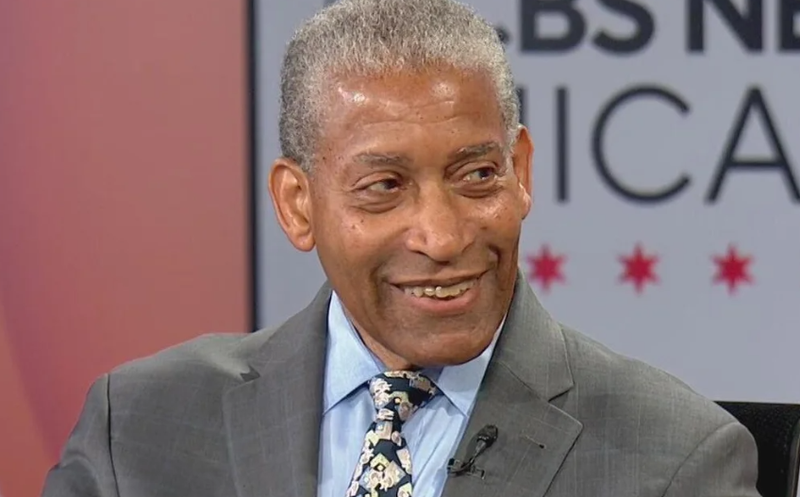
Chicago radio icon Craig Dellimore is retiring from WBBM Newsradio this week after more than four decades with the station. To cap his illustrious career with WBBM, he spoke with Rob Hart for “At Issue” about journalism, radio, politics and more.
Dellimore fell in love with journalism in the 1960s, a tumultuous time of riots and political activism.
“I was recruited for a New York Times journalism workshop,” he told Hart. That program “took high school students and put editors and reporters in front of them on Saturdays to learn the basics of journalism. And so that was how I and my best friend at the time – and still is my best friend – that we ended up spending our Saturdays not playing games and things, but getting on the New York subways and going into the Columbia School of Journalism, which is where they based this.”
From that Columbia program, Dellimore landed a summer job in journalism. After going to college and then to journalism school, Dellimore joined the team at WCBS in New York City as a news writer in the 1970s.
Amid the political shifts that came in the 1960s and 1970s, change also came for journalism.
“I think what made everyone think twice was, frankly, the civil unrest of the 60s, and going forward, because people realized that you didn’t have a variety of voices, that they didn’t see it coming,” said Dellimore. “I think that’s really what it was. People didn’t see all of this coming, and said maybe we ought to either train and or hire people who had a different perspective.”
Dellimore admits that he was “scared to death” when he first joined CBS Radio in New York, an epicenter for groundbreaking news. He said the pace and quality of writing expected was phenomenal.
While Dellimore was mostly a writer at WCBS, he did go on air when former Vice President Nelson Rockefeller died in the middle of the night.
From WCBS, Dellimore went to the Associated Press in Washington D.C. He decided to move there to be with his now wife, who was going to law school at Georgetown University. He likens that experience to being in a classroom, as the AP radio staff were mostly young journalists who would go on to have successful careers at other outlets.
“I’ve always looked at this as learning something every day,” said Dellimore. “That’s how I approached my work. And so as long as I could learn something new every day, I was feeling like I could grow in this business.”
Dellimore’s journey to WBBM in Chicago all started with a prison break at Sing Sing in upstate New York. He was pulled in to help relieve a reporter who had been reporting the case and the WBBM news director, Joe Durso, heard him on the air.
“When I got home, there was a call from Joe Durso – who was the person who told me about AP Radio in Washington – that he was now not in Washington, but here and running WBBM and said: ‘Hey, would you like to come out and talk about a job in Chicago?’”
It was 1983 when Dellimore packed up and moved to the Windy City. Over the years, he started to focus more on political news and in 2001 became the station’s political editor.
“This was the one time I went into a really big new job where I was confident, but that was because [former political editor] Bob Crawford literally made sure that I was the only choice to replace him,” said Dellimore. “We worked on a number of conventions together and got to know each other well, and I was Suburban Bureau Chief for years, and that meant that I got to know a lot of the Republican politicians better than he did, and so when he went on vacation he would say: ‘Why don’t you take over ‘At Issue’ for me, fill in and then you can bring some of the people you know onto the air.’”
In becoming the political editor, Dellimore inherited a desk at City Hall. He also entered into the job during a new era of politics in the city with the tenure of former Mayor Richard M. Daley. In Chicago, Dellimore also reported on national history: the election of the country’s first Black president in 2008.
Dellimore said the covering the election of former President Barack Obama from Grant Park was an “amazing moment” but also “the end of a series of moments,” since he had known Obama as a state senator while covering local politics.
“Through the campaign and everything else through the convention, where I saw people crying as he was nominated to be the democratic candidate for president... those moments come together for me,” and culminate with the memory of sitting next to Sen. Tammy Duckworth when the announcement came that Obama had won the election, said Dellimore.
Looking back on decades in journalism, Dellimore sees a career well spent.
“I think I’ve done so much and been blessed to cover so much,” he told Hart. “I don’t think I’d change a thing.”
